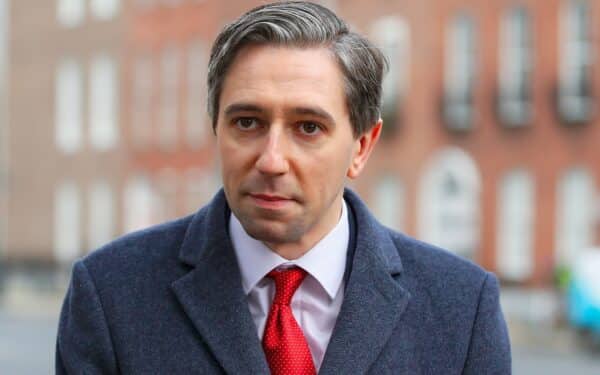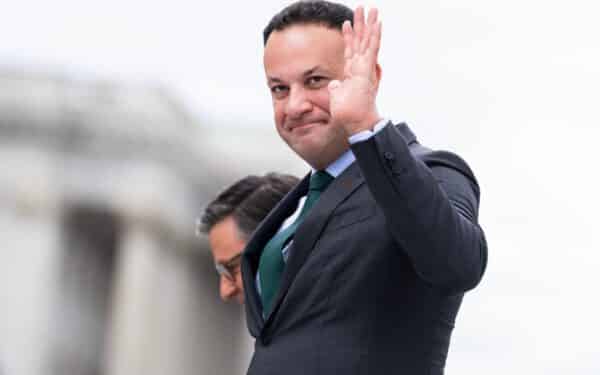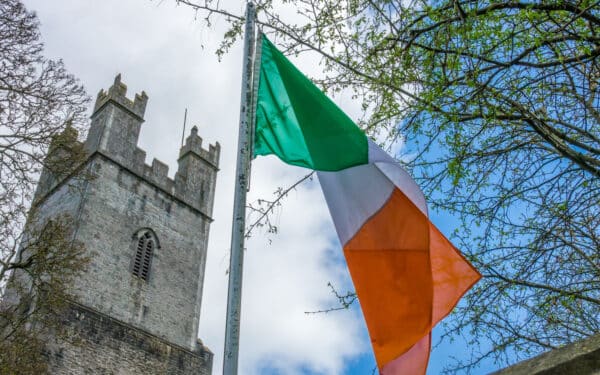The Irish love to think of themselves as rebels at heart. Part Quiet Man schtick, part rooted in history, each a Wild Colonial Boy, a Donnybrook brawler, up the IRA and no law beyond the pale. An Irishman kneels to no man. Unless he’s a god. Of whatever persuasion.
No country is free of a self-image, of course and the diaspora has done a good job of exporting Ireland’s in both spirit and, occasionally, deed. Think Ned Kelly, son of a Tipperary transported convict sent to Van Diemen’s Land – Tasmania – for pig theft, next minute shooting it out with the coppers and a bucket on his head.
Even the bands are defiant. Bob Geldof demanding charity money with menaces. Póg mo thóin. The Pogues. “Kiss my arse.”
You might have thought that Leo Varadkar, what with being Taoiseach and all, would have been aware of this tendency not just to talk rebellious talk but walk the rebellious walk. I mean, he’s played the card enough himself when it comes to villainous England, painted forever as a reactionary murder city, no immigrant safe and the sun never setting on the Brexit vote. There’s a pub song in there somewhere.
But, just like his English homologues, the danger of talking only to a political class with whom you violently agree is that you can occasionally forget the population you’re supposed both to lead and represent.
You see, deciding that your country is a shining example of internationalism, modernity and social liberalism is one thing, checking to see whether “your truth” and reality coincide is entirely another. And in such moments, reality always wins.
Because while the English tend to exhaust themselves in moments of huge but centuries-separate upheaval, like regicide, reformation or voting Brexit, for the Irish, like the French, revolting is a way of life.
A once homogenous, socially conservative country still hearing the echoes of the Catholic Church and rural at heart doesn’t, like the English, wring its hands over the social impact of mass immigration. It riots and takes up the centuries-old tradition of “burning out”.
Undaunted by fair warning that the population might have had enough of the ever-onward march of what the metropolitan classes believe, Varadkar, flogged on by NGOs and a cross-party consensus, held a referendum on changing the constitutional definitions of family, motherhood and family care. The upshot was the highest ever no vote in Irish referendum history. And they’ve had a few!
Holding the vote in the same week as Mother’s Day was a particular stroke of political genius. Married families and mothers as domestic boss, home win.
As with many of these debates, what you and I might make of the causes at issue isn’t the point. We either live in a country that’s given up God for card companies and hashtags and who think being devoted to mum is a bit Eastenders. Know what I mean? Or, failing that, believe traditional social structures don’t reflect the reality of people’s lives and live and let live. Take your pick.
But what we Brits and the Irish appear to have in common, apart from a rather testy and intimate history, is feeling increasingly fed up with being led where we don’t want to go by a heedless ruling class permanently convinced of its own rectitude.
Yup, we got there first with Brexit, just like we beat the French to making kings a head shorter than they were at coronation. But thereafter, we collapse into managerialism, grumbling and political foot-dragging. Unlike the Brits, too polite for our own good and far less rowdy than our friends on the Emerald Isle, you can’t help but feel that the Irish have just told their elites to póg mo thóin.
Write to us with your comments to be considered for publication at letters@reaction.life




